I connected with Erynn Lehtonen after reviewing the first book of her Yokai Calling series, Ramshackled. I was thrilled to discover, via twitter, that she is Canadian. We got talking about her series and, since I loved it, she wondered if I would review her second book as well. Check out my thoughts on the Yokai calling series so far here.
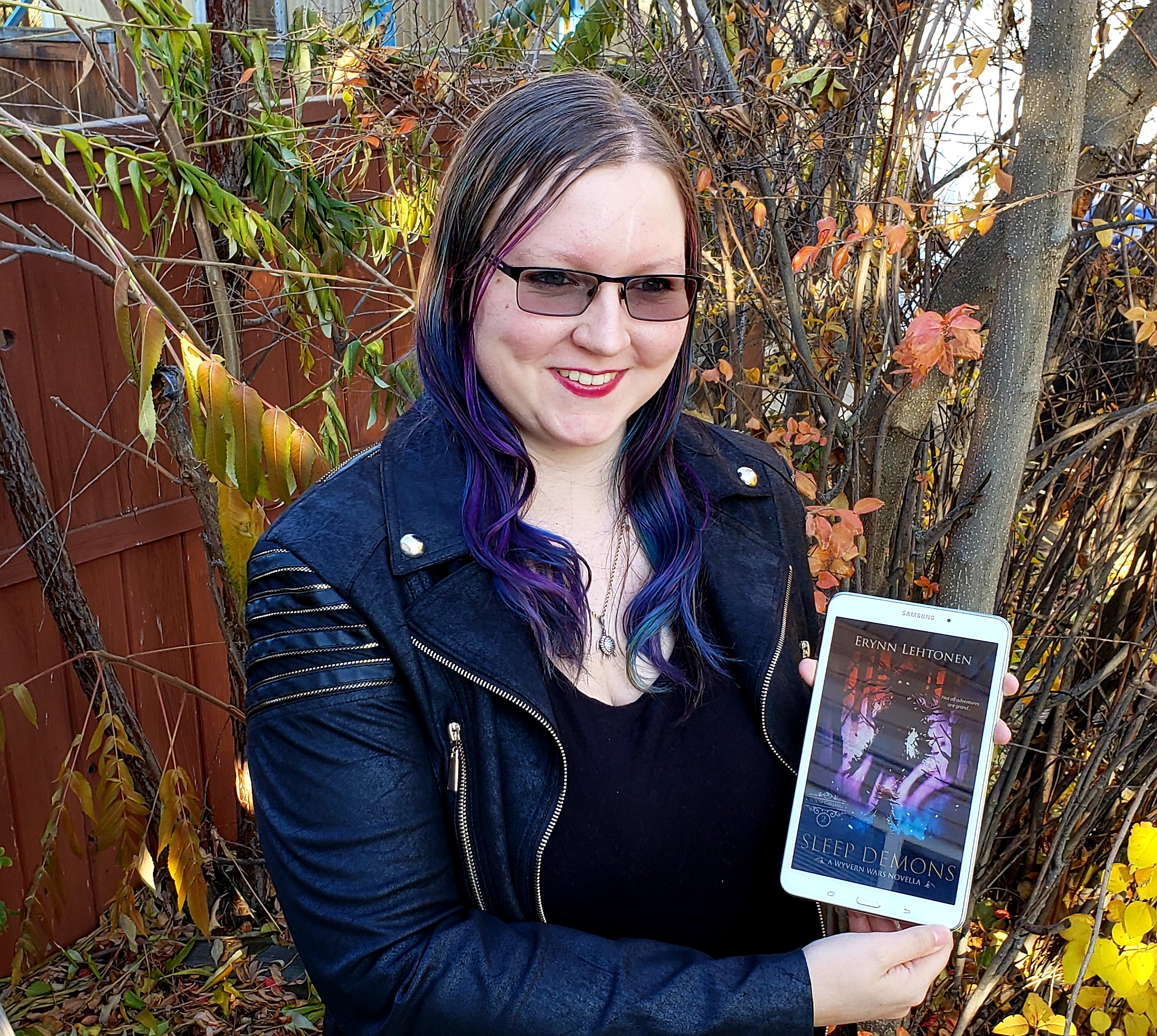
Today, I’m hosting her for her author interview to learn more about her inspiration for the series, books she loves, research, amongst other things! Enjoy the interview! 🙂
- Where did the inspiration for this series come from?
The inspiration for the Yokai Calling books is somewhat complicated, so I’ll do my best to explain. Although Ramshackled and Sleep Demons are my first-ever published books, they weren’t supposed to be. In 2015, I started working on the book that’s now titled Path of the Warlock, which follows Hidekazu, Masanori, and Aihi, just like the Yokai Calling books (with some additional characters, of course). However, I was already marketing conscious at that time, and didn’t want to just write a book and publish it without anyone interested in reading it.
So, my solution was to write a series of short stories that followed the same characters on several standalone adventures. They were meant to be cool and fun, mostly to help me build an audience and give readers the chance to form relationships with the characters and world before the main series came out. This was a great plan, in my eyes, and I’d seen several other authors do it successfully, so I was determined. But all my ideas fell flat. Nothing was working; I couldn’t get Hidekazu and Masanori to stick in short form writing.
I was frustrated, but I wasn’t keen on giving up, so I took a break. I started editing Path of the Warlock, looking for something that could serve as an idea for a short story. Instead of being struck by my muse, Hidekazu and Masanori began to… push back. Authors talk about how their characters have minds of their own and how, sometimes, they take the reins away and steer the story to suit their own agendas. This was kind of like that, but in a different way. Hidekazu and Masanori didn’t want to control the plot as much as they were telling me they weren’t who I thought they were. They weren’t warrior-twins who romanticized battle. They weren’t naïve to the dangerous of magic, monsters, and war, being sent off on their first adventure away from their homeland. Instead, they were scarred with experiences no teenager should have.
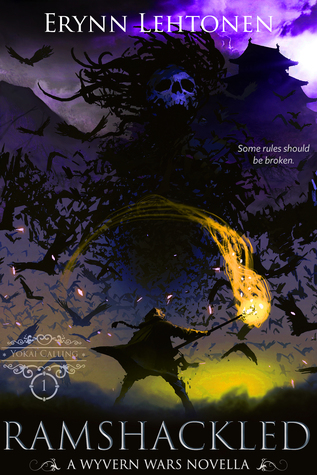
Yokai Calling Novella # 1: Ramshackled 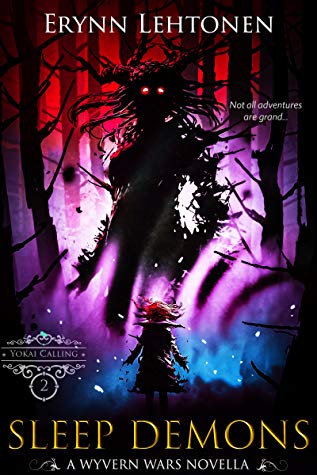
Yokai Calling Novella # 2: Sleep Demons
So in this revision, Hidekazu morphed from an adventurous teen with incredible power and into a young man with power, responsibility, and a history of trauma that weighs on him in private, manifesting as anxiety and depression. Masanori, on the other hand, was supposed to be a playboy warrior with a reputation in both; now, with similar trauma to Hidekazu, he’s turned into an isolated yōkai-slayer who suffers from PTSD.
This drastic change in character intrigued me, and ultimately acted as my inspiration for the Yokai Calling novellas, where I explore how Hide and Masa became those people.
- The Yokai Calling series is based on Japanese mythology. Why did you choose Japan as the setting for your book?
I wouldn’t say Japan is the setting of the book so much as it served as inspiration. In no way are Seiryuu (the primary country where the stories take place) or Yumihari (the overall universe) supposed to be an exact copies of Japan, Japanese culture, or myth, although I have tried to stay true wherever possible.
Nonetheless, when I originally started working on these books, I didn’t envision them as something inspired by Japanese myth at all, and they resembled pseudo-European fantasy with some touches of Japan here and there. Back then, I was working on this project jointly with someone else who is of Japanese heritage (he has since distanced himself from the series, and I work on it on my own). I can’t explain exactly how we got from point A to point B, but his history ended up as a bountiful source of inspiration to completely change the story’s setting into the Japanese-esque world that now dominates the Yokai Calling books.
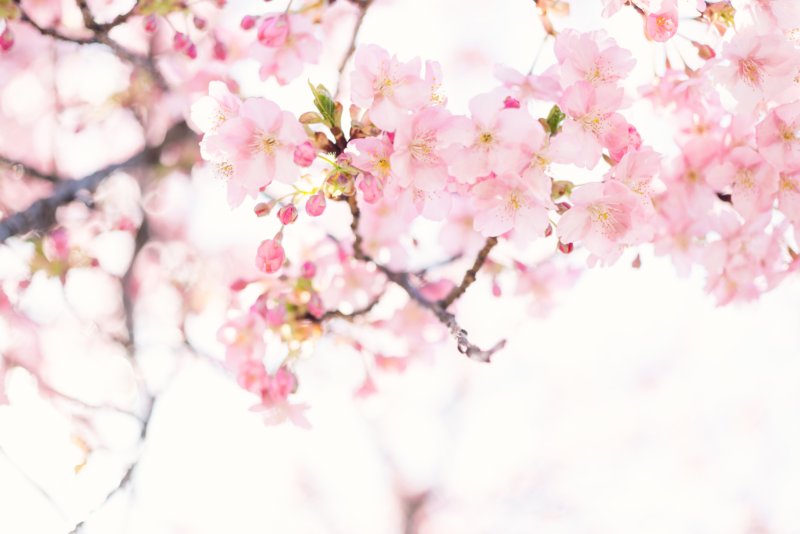
- I absolutely love Hide’s name. 🙂 How do you select the names of your characters? Are they just names that appeal to you, did you look them up for a special meaning?
It depends on the character and situation, but a lot of the time I try to pick names that have a special meaning relevant to the character, and ones that I like! Sometimes it will take me hours of research to come up with something suitable. In the case of Hidekazu’s name, I got really lucky. I don’t remember how I found it, but it’s written with the Japanese kanji for “superiority/excellence” and “knowledge/wisdom” and is written as 秀知. Meanwhile, Masanori is written with “brave/strength” and “elegance/grace” and is written as 壮雅.
Another fun tidbit: Aihi’s name is written as “beautiful sun” but she is often teased with the name “Ai-hime” because Aihi, written with different characters, can mean “love princess.”
- Through Masa and Hide’s story-telling as well as Aihi’s struggles, family plays an integral role in the novellas. How has your family supported you and helped you develop as a writer?
I can say confidently that my family has always been supportive of my writing. My mother and many other family members who I’m close to love books, and that encouragement drove me to start telling my own stories. Although I’m sure my family sometimes wishes I’d gone to school to become a doctor or engineer instead, they know writing makes me happy and that I’m very realistic about my goals and expectations… i.e. I’m not writing because I want to become famous or make lots of money.
Being able to write without that fear of disappointing my family has been a huge advantage for me. It’s allowed me to study creative writing in university without feeling too guilty about it, and given me the chance to be open about my writing struggles and dreams instead of hiding them.
- Books and knowledge are dear to Hide and I absolutely love the way you have integrated them into the narrative. Which are some of your favorite books that you go back to from time to time? How has your creative writing degree helped you write Hide and Masa’s story?
To be honest, I don’t often re-read books. There are so many that I struggle to justify it unless they’re books I loved to the end of the earth. However, there are a couple that I hold dear to me, that I have re-read multiple times and have plans to read them again in the near future.
- Elsewhere by Gabrielle Zevin (it helped me through a tough time in middle/high school)
- The Nevernight Chronicle by Jay Kristoff
- The Riyria Revelations by Michael J. Sullivan
I caution anyone who doesn’t like death, blood, and gore away from reading Nevernight, but the series is my all-time favourite. Riyria, on the other hand, is an amazing family-friendly tale for those who love adventures in fantastical worlds. This series is perhaps just as amazing as Nevernight, but for different reasons, and it’s especially important to me because the stories inspired me during a long writing slump I had during high school when I was struggling to decide what I would study in university and ultimately convinced me to take the leap and just write.
The thing about studying creative writing, at least how I’ve experienced it, is that I’m not just studying writing. I’ve taken classes on history, anthropology, geography and earth sciences, literature, politics, and more. Each experience has added to my writer’s toolkit. I think going to university in general provided the experience I needed to round out my knowledge over a vast number of subjects required (or that are at least very helpful) to create fantasy worlds grounded in reality. Meanwhile, studying creative writing specifically helped me improve my skills as a writer and helped me realize that I wanted to specifically write about characters suffering from mental illnesses, which proved especially important when it came to crafting Hide and Masa’s story (and stories to come).
- Sleep Demons caught me off-guard a little bit with the timelines of some of the chapters. Rather than following a linear narrative like Ramshackled, why did you switch things up a bit here?
When I was writing Sleep Demons, I didn’t really think in terms of telling a linear or non-linear story; I told it how I thought it needed to be told. The first chapter was intentionally displaced from the ending and placed at the beginning because I wanted to create a mystery that would make people who had read the first book eager to read more, but I also wanted to send a message that there would be more violence than in the last book.
As for the rest, I can’t really explain my thinking much besides that’s what felt right, which is especially strange for me because I much prefer writing stories that are almost entirely linear.
- What does mythology say about kan’thirs? Why did you choose them as one of the main characters in the story?
The kan’thir are a race in the Yumihari universe that are half human, half goat, but I created them on my own and can’t say that I got my inspiration from any Japanese or other mythological sources. The land they come from in the books doesn’t share many (if any at all) similarities to Japanese culture, language, etc. and if I had to pick a reference, I would say they have customs similar to the ancient Aztecs. Interesting enough, I don’t think there are any half goat, half humans in Japanese myth, although there are a LOT of chimera-like creatures with the physical characteristics of multiple different animals.
Part of why I chose the kan’thir as one of the main characters is because the kan’thir as a whole play a larger role in the main series (the Yokai Calling novellas are a pre-series to the Wyvern Wars books) and I wanted to introduce them before that point. Why I chose Lacotl in particular would spoil some aspects of books much further down the line, though. 😊
- Are you planning on writing other series or Yokai Calling is your main focus, for now? How many novellas will there be?
The Yokai Calling series has four novellas in it and those are my primary focus for now, but I have LOTS of planned series in the future. Next, I’ll be working on the Wyvern Wars series, which takes place about two years after this one ends. But the Yumihari universe is massive, and I’ll probably write dozens of series within it. Besides that, though, I have two planned series that take place in completely different universes. One is an science fantasy and another is an urban fantasy/paranormal romance.

- Are there any books that you would say influenced and shaped you as a writer?
The books I listed before, the Riyria Revelations and the Nevernight Chronicle, definitely fall under this category. I decided to pursue creative writing in university (despite my teachers telling me not to) because of the Riyria books and Michael J. Sullivan’s story behind publishing them. Although my story is much different than his, I feel like most writers are united in that those moments of doubt that lead us to quit writing, or at least severely contemplate it. In my case, if I had pursued medicine instead (which is what I was leaning toward), I probably wouldn’t have continued writing at all or very much for another decade until I was done school. And I would have regretted it for the rest of my life.
As for the Nevernight Chronicle, I wrote essays about the first two books during university because of how well crafted they are. The plot arcs, character arcs, and world building are all tightly intertwined, and examining them through an analytical lens made me a better writer, at least in my opinion. Plus, they’ve inspired me to take another look at my own assassin sweetheart, who I’ve had on the shelf for many, many years now.
- What would you tell your younger self when it comes to writing?
Two things.
During my first years of university, despite studying creative writing, I didn’t really work on any of my personal projects that I was passionate about.
By that I mean the books I had ideas for before I went to school. I’d stopped working on them to focus on school, and I really regret it.
Although I have learned a lot about writing between then and now, when I’m just considering picking up those projects again, I could have finished and published something much sooner than now had I stuck with it.
Second, I would tell myself not to be so afraid of indie publishing.
While I started out in school, I had my mind set on traditional publishing, and thought indie was icky. I was wrong and stupid of course, but at university, or at least mine, indie publishing isn’t talked about as an option. People look at you weird for even mentioning it. So it wasn’t until my third year that I began to realize that wasn’t the case, and I started questioning the authority of large publishing houses and saw that there is a lot of potential for the indie world to grow and improve, but also lots of room for dedicated authors to flourish. I’m fully indie now, and maybe I’d still consider traditional publishing with the right book, but I’m happy with where I’m at. I might have buckled down and finished a book sooner if I’d realized sooner that I didn’t need to wait for the seal of approval from an agent, editor, and publisher.
** Ramshackled and Sleep Demons are both available as ebooks so get a copy and let me know what you think! **
Ramshackled: Amazon Kindle
Sleep Demons: Amazon Kindle
I’m thankful to Erynn for connecting with me and sharing her stories. Don’t forget to check out my thoughts on the Yokai calling series so far here.
Cover image: Photo by Masaaki Komori on Unsplash
Writing desk Photo by Clark Young on Unsplash

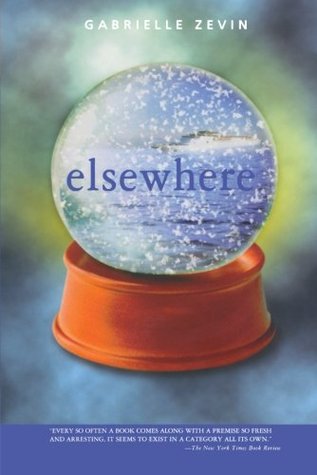
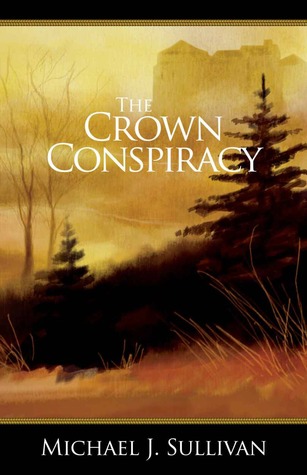
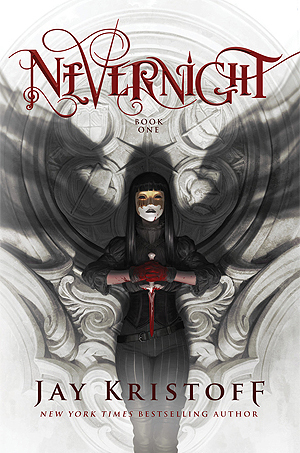
Good interview!
Thank you!